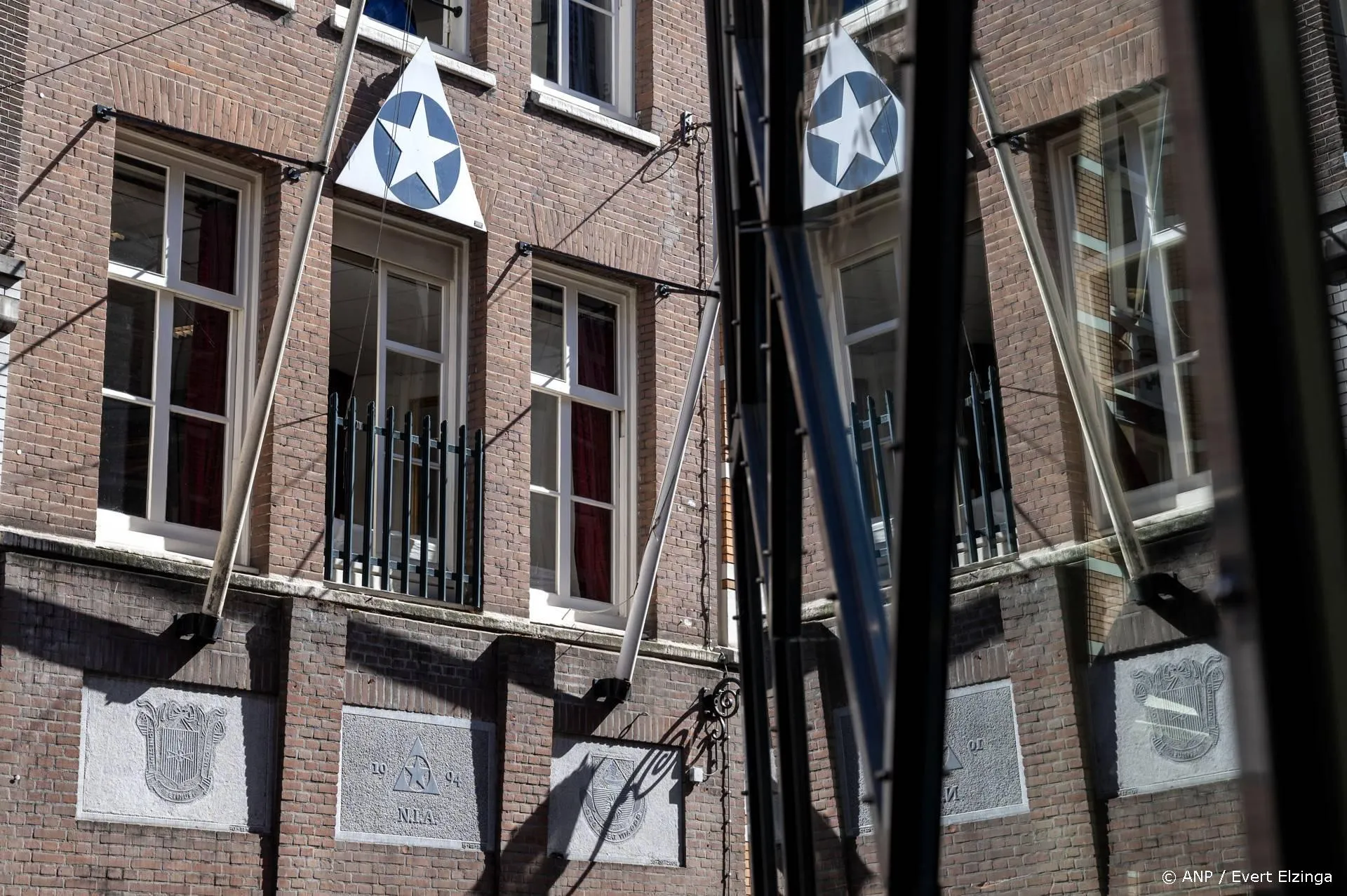Ontreddering na mislukking reparatiepoging Europees CO2emissiehandelssysteem
Zullen de politiek verantwoordelijken nu de consequenties trekken uit dit majestueuze fiasco?
De toekomst is niet meer wat ze geweest is.
Eerder rapporteerde ik over de weigering van het Europese Parlement om het kwijnende Europese CO2-emissiehandelssysteem (ETS), het vlaggenschip van het Europese klimaatbeleid, een nieuw infuus te geven. Dit heeft ingrijpende gevolgen voor het wereldwijde klimaatbeleid en de kansen op economisch herstel in vele landen.
Verschillende internationale media maken de balans op. Ik pik er een aantal krenten uit.
Onder de titel, 'Cap And Trade Collapses' publiceerde 'The Wall Street Journal' het volgende redactionele commentaar:
One of the great policy bubbles of our times has been cap and trade for carbon emissions, and on Tuesday it may have popped for good. The European Parliament refused to save the EUs failing program, which is the true-believer equivalent of the pope renouncing celibacy. ...
EU carbon permit prices have collapsed as the Continents economic crisis curbs energy demand. Utilities and industrial firms have less need to emit CO2 above their statutory limits. Total emissions in the EU fell by nearly 10% between 2007-2011, according the most recent data. The low price of carbon allowances is good for consumers who dont have to absorb the extra regulatory cost in what they pay for energy.
Anticarbon crusaders never give up, however, so they wanted the Parliament to intervene to prop up permit prices. They want higher-than-market prices for fossil fuels because they know that is only way they can force the production of renewable energy that is otherwise uncompetitive. The Parliament majority rightly judged that raising energy prices for companies and households is ludicrous when Europe is barely growing as it is.
This failed political intervention also gives the lie to the claim that cap and trade is a market solution to climate change. Proponents only like the market in permits when it keeps carbon emissions prices high. Cap and trade is an attempt to use brute political force to limit the supply of carbon energy.
Lees verder hier.
Onder de titel, 'EUs Lawmakers Take Ax to Green Agenda. EU Carbon Plan at Junk Status', schrijft Ben Winkley voorts in 'The Wall Street Journal':
The future of Europes environmental agenda is in serious doubt after lawmakers rejected a proposal that would make carbon emissions more expensive. Europes Emissions Trading System, launched in 2008, was based on the principle that polluters pay to cover their emissions, and that by raising the cost of polluting, it would encourage businesses to invest in cleaner technologies. Slack demand for electricity because of the recession, and an abundance of permits because of an initial overgenerous giveaway helped push the price of emitting a ton of carbon below 5 ($6.60) earlier this year from nearly 30 in 2008. After European lawmakers voted not to postpone issuing new permits for between five and seven years, the price halved again. The Economist describes the market as below the level of junk bonds.
For the green agenda, this appears to be a crushing blowa push for job generation and stronger economic growth has triumphed over a bid to tackle climate change.
Last week the environment ministers of some of Europes largest member states called on members of the European Parliament to support a strengthening of the trading system, warning that eight years of climate action will be lost.
Lees verder hier.
Ondertussen vreest de industrie in Groot Brittannië catastrofale problemen wat betreft de unilaterale invoering van 'carbon floor prices'. Onder de titel, 'UK Industry Faces Catastrophic Problems Over Carbon Floor Price', rapporteren Pilita Clark en Chris Tighe in de 'Financial Times':
UK industrialists have warned they face catastrophic problems after the European Parliament voted down a plan to raise the cost of carbon pollution across the EU. Tuesdays vote means prices in the EU emissions trading system, the worlds largest carbon market, are likely to stay at about 3 a tonne for at least the next seven years, analysts say. This could disadvantage British companies because the UK has just introduced a separate carbon price floor to make sure its industries pay a set amount for carbon pollution. The new tax starts at £16 per tonne of carbon emitted this year, rising to £30 by 2020. The price floor is expected to raise more than £4bn for the government over the next four years.
But the difference in carbon prices between the UK and the rest of the EU is a problem say industrialists in Teesside, where a number of the UKs biggest carbon dioxide emitters are located. Its a bit of a disaster for us if we cant equalise and work on a level playing field with Europe, said Stan Higgins, chief executive of Nepic, the north east process industry cluster. Europe is our main competitor, particularly when it comes to investment and jobs.
The risk is that companies will move their new investment, and possibly some of their current processes, to locations with more favourable energy prices and carbon taxes, he said. If this happens, in reality all we are doing is shifting the pollution to other countries. We arent stopping it.
Lees verder hier.
Ook Australië komt in de problemen. Onder de titel, 'Labor in a $7 billion black hole as world carbon price collapses', rapporteert Gemma Jones in 'The Daily Telegraph':
A collapse in the European carbon price will burn a hole in Wayne Swan's budget, with the government scrambling to remodel and downgrade its forecasted price in 2015. News of the writedown came as the European price sank below $4 after measures to prop it up failed in the European Parliament. A new round of tax cuts due in 2015 that were to help Australians cope with what had been expected to be a world carbon price of $29 a tonne will still be paid despite the federal government revising its forecast. The compensation will cost $14.9 billion over the first four years of the tax which started on July 1 last year at $23 a tonne.
Treasury officials had predicted in 2011 that, when the carbon tax moves to a floating price in 2015, the world carbon price would be at least $29 a tonne and as high as $61 a tonne. A floor price of $15, described by the government in 2011 as a "safety valve" that was to apply for three years from 2015, was scrapped in August last year so the Australian scheme could be linked to the European scheme.
Lees verder hier.
Onder de titel, 'Europe Shifting Away From Climate Agenda, melden Joshua Chaffin, Pilita Clark en Neil Hume ten slotte in de 'Financial Times':
The EU Parliaments vote is only the latest evidence of how a crisis-hit continents appetite for climate change policies appears to be fading fast. Not long after the European parliament cast doubt on the future of the EUs key policy to confront global warming,
José Manuel Barroso, the European Commission president, huddled with his climate commissioner, Connie Hedegaard, in the VIP lounge at Strasbourg airport. Mr Barroso, according to people present, reassured Ms Hedegaard that he remained absolutely committed to tackling climate change in spite of MEPs rejection of her plan to prop up the EUs troubled carbon market. But beyond the confines of that room, Tuesdays vote has provoked much soul searching about the blocs devotion to an issue that once topped its agenda and shaped its self-image.
Four years ago, in the run-up to the international climate conference in Copenhagen, Mr Barroso and other EU leaders pledged publicly and repeatedly to lead the world in the fight against global warming. They touted the EU emissions trading scheme as the hub of what would one day be a global carbon market. Their embrace of the climate issue cast a halo over the European project as a benign and collaborative force for good in the world. It was an integral part of the brand, said Tom Brookes, director of the European Climate Foundation.
These days, it is accepted even by climate warriors like Mr Brookes that global warming has been consigned to a seat in the waiting room while the EU tends to a chronic economic crisis that has threatened the single currency and increased unemployment. [...]
Tuesdays vote is only the latest evidence of how a crisis-hit continents appetite for climate change policies appears to have faded in recent months.
Lees verder hier.
En zo stort het kaartenhuis steeds verder in elkaar, zowel wetenschappelijk als politiek, conform de jarenlange voorspellingen van uw dienstwillige scribent.
Zullen de politieke verantwoordelijken nu de consequenties trekken uit dit majestueuze fiasco? Het zal toch wel niet? Immers, hun intenties waren nobel: het redden van de planeet. Toch?
Voor mijn eerdere DDS-bijdragen, zie hier.
Ga verder met lezen
Dit vind je misschien ook leuk
Laat mensen jouw mening weten
Lees ook
Loading


